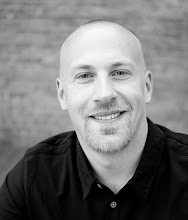"Let’s Talk About Faith" - New York Times op-ed
Christians are called to engage our world with the good news Jesus offers. It is either true and the hope of the world, or false and a delusion of great proportions. But Christianity needs to rise to the level of true or false. And we need to talk about it in those terms. Not the neutered and self-referentially incoherent language of "that's just true for me."
I have picked out some especially insightful quotes to consider:
"Liberal democracy offers religious believers a bargain. Accept, as a price of citizenship, that you may never impose your convictions on your neighbor, or use state power to compel belief. In return, you will be free to practice your own faith as you see fit — and free, as well, to compete with other believers (and nonbelievers) in the marketplace of ideas...."
"This doesn’t mean that we need to welcome real bigotry into our public discourse. But what Hume said wasn’t bigoted: Indeed, his claim about the difference between Buddhism and Christianity was perfectly defensible. Christians believe in a personal God who forgives sins. Buddhists, as a rule, do not. And it’s at least plausible that Tiger Woods might welcome the possibility that there’s Someone out there capable of forgiving him, even if Elin Nordegren and his corporate sponsors never do."
"When liberal democracy was forged, in the wake of Western Europe’s religious wars, this sort of peaceful theological debate is exactly what it promised to deliver. And the differences between religions are worth debating. Theology has consequences: It shapes lives, families, nations, cultures, wars; it can change people, save them from themselves, and sometimes warp or even destroy them.
If we tiptoe politely around this reality, then we betray every teacher, guru and philosopher — including Jesus of Nazareth and the Buddha both — who ever sought to resolve the most human of all problems: How then should we live?
It’s reasonable to doubt that a cable news analyst has the right answer to this question. But the debate that Brit Hume kicked off a week ago is still worth having. Indeed, it’s the most important one there is." (read the whole article)
Labels: Apologetics, Evangelical, Evangelism, Faith, Faith and Politics, Gospel, Pop Culture, social media, Truth, truthiness


0 Comments:
Post a Comment
Subscribe to Post Comments [Atom]
<< Home